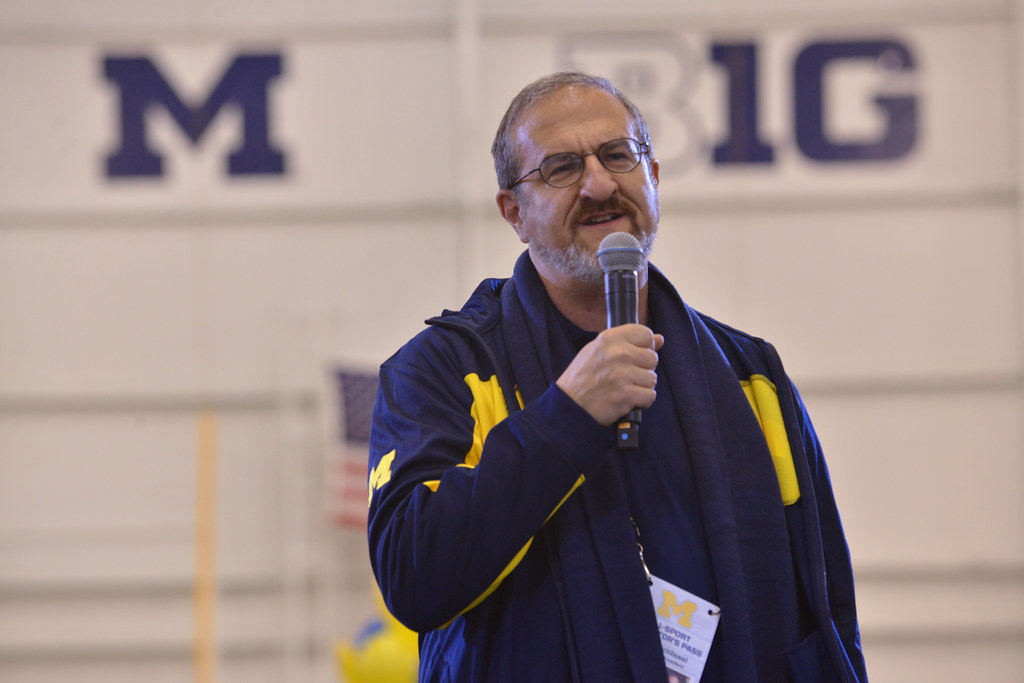Former President Mark Schissel’s surprise downfall sent shockwaves through campus Saturday evening, and left many wondering how his now-obvious inappropriate relationship went unnoticed for so long. Still, others reflected on the situation through meme pages, fan-fiction articles, and merchandising opportunities. The celebrations outside of the President’s House on January 15th attest to the popular sentiment against this disgraced educator.
Schlissel’s swansong represents the final nail in the coffin of his inglorious seven-year presidency. Yet each successive nail that preceded his exit all indicate the same thing: Schlissel’s tenure has been marked with uncountable failures. His leadership has essentially been opposed to students’ interests, and has failed to truly embody the “Leaders and Best” spirit that our institution so strongly identifies with. As we start to evaluate his legacy, let’s not forget some of the recent episodes that should weigh heavily on any reflecting mind.
As we start to evaluate his legacy, let’s not forget some of the recent episodes that should weigh heavily on any reflecting mind.
Schlissel’s administration fumbled the COVID-19 response
And perhaps, they still are fumbling it today, even as they admit their “missteps”. Let’s not forget that the failures under his leadership led to a mass exodus from University Housing not once, but twice! The amount of flip-flopping on masking, testing, and even where one can eat is nearly immeasurable, and the inconsistency is striking too. Surely one is unsafe to remove their mask indoors, but a crowd of 110,000 unmasked fans at the Big House can still fly, right? I digress. Schlissel’s failure to respond to the pandemic in a way that respects sciences and the needs of the community may go down in history as the greatest flaw of his tenure. The Faculty Senate’s vote of no confidence in his lack of COVID-19 leadership readily attests to this reality.
Schlissel’s botched response to the graduate student strikes led to academic tumult for undergraduate students
In short measure, countless courses (including some that I was a student in) were put on pause as GSIs took to the picket lines, all while the administration paused to dispute the legality of the strike and use the courts as their preferred tactic to end the stoppage. Though I was not in support of many of the strikers’ goals, I disagree with Schlissel’s use of legal coercion as the “only choice” to defuse the disruption. This strike was felt at all levels, and elicited responses from student leaders on campus. LSA Student Government held Schlissel and the administration to account for their handling of the Fall 2020 Graduate Employees’ Organization (GEO) and ResStaff strikes, and critiqued his handling of these dual crises. Central Student Government (CSG) criticized the Schlissel administration’s response to the GEO strike as well, referring to the university’s response to the strike as “reprehensible”.
Though the path ahead is shrouded, and interim President Mary Sue Coleman’s legacy is imperfect to say the least, I think the student body can express a collective sigh of relief now that the ineffective (if not downright counterproductive) reign of Mark Schlissel is ended
Schlissel exercised hypocrisy and generally failed to adequately address sexual harassment on campus
Schlissel was removed from his office after he violated the rule that he helped implement in July 2021. Former Provost Martin Philbert got away with sexual misconduct for decades due to failings on the part of our institution and its leader, according to the WilmerHale investigation. The hundreds of allegations that have been levied against the late Dr. Robert Anderson have been met with relative indifference on the part of Schlissel’s administration. Though alleged victim Jon Vaughn has been camped in front of the President’s House since October 2, 2021, Schlissel seemed disinterested in meeting with him to discuss the harm that Vaughn alleged took place—though he did “appreciate him”. As we see Schlissel leave office, one cannot help but note the sheer hypocrisy by which he operated, as he exercised the same ethicless behavior that he spoke against on numerous occasions.
Schlissel took the “golden parachute”
He gladly accepted a multimillion-dollar departure package, even as staff experienced pay freezes and hiring moratoriums, and students felt the pangs of tuition hikes. This boon was not the first he had received from the Board of Regents; in the last half-decade, his salary increased to unprecedented heights. His 2014 base of $750,000-plus-benefits exceeded President Emerita Mary Sue Coleman’s compensation that she was paid after serving more than a decade in the office. Again, student leaders were prompt in expressing their dismay with his exit package. In October 2021, they unanimously passed a resolution condemning his “exorbitant” retirement package. As a Michigan taxpayer and tuition-paying student, I personally breathed a sigh of relief when I learned that he would not be receiving this package in the face of his dishonorable removal.
Though the path ahead is shrouded, and interim President Mary Sue Coleman’s legacy is imperfect to say the least, I think the student body can express a collective sigh of relief now that the ineffective (if not downright counterproductive) reign of Mark Schlissel is ended. This does not mean that future presidents and leaders of the university will rise to our high standards and devote themselves to serving the students and faculty capably, but one thing is certain:
I won’t miss Schliss.
I won’t miss Schliss.
